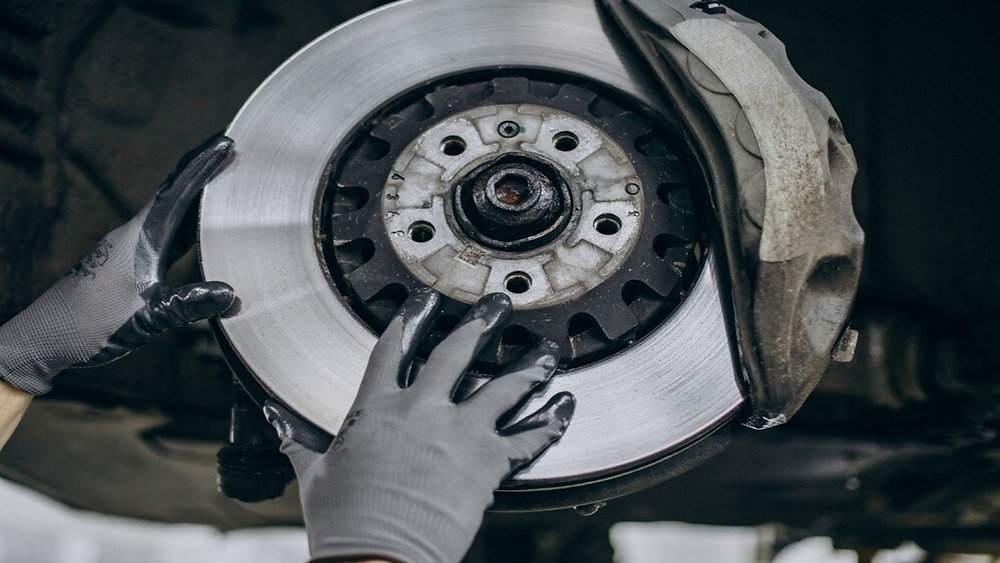Understanding the basics of brake maintenance is crucial for ensuring your vehicle’s safety and performance. The braking system is one of the most important components of your car, responsible for stopping or slowing down the vehicle efficiently.
Regular brake maintenance not only helps prevent potential failures but also extends the lifespan of your brakes, saving you from costly repairs. By familiarizing yourself with the key aspects of brake maintenance, you can identify issues early and take appropriate action.
This guide will cover essential topics such as the importance of brake fluid, recognizing worn brake pads, the role of brake rotors, the benefits of regular inspections, how to handle brake noises, and the advantages of professional brake servicing.
With this knowledge, you can ensure that your braking system remains in top condition, providing you with safe and reliable driving.
Importance of Brake Fluid
Brake fluid is a critical component of your vehicle’s braking system, responsible for transferring the force from your brake pedal to the brake calipers. Over time, brake fluid can absorb moisture from the air, leading to a decrease in its boiling point.
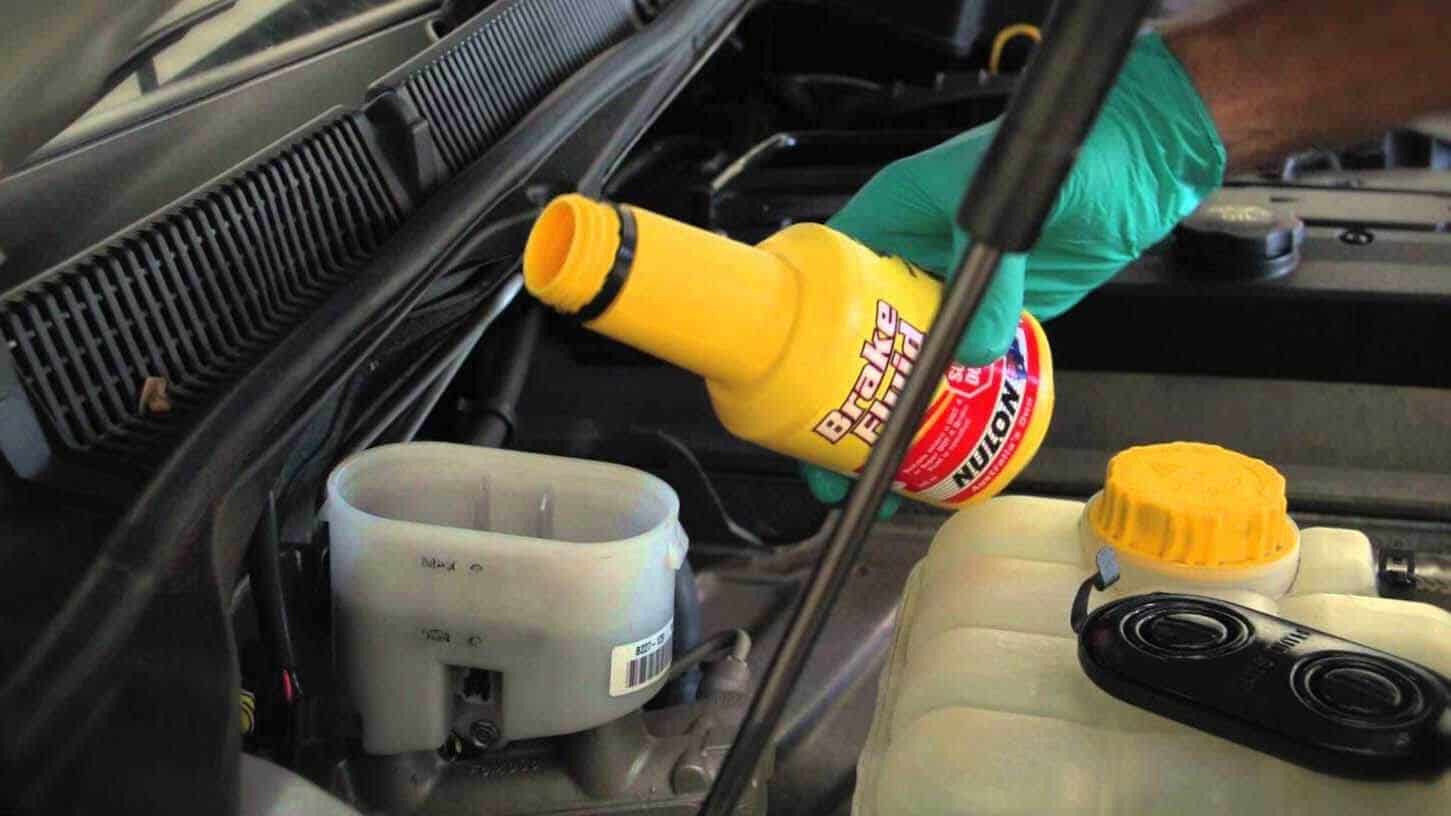
This can result in reduced braking efficiency, especially during heavy braking or prolonged downhill driving. Regularly checking the brake fluid level and quality is essential. If the fluid appears dark or dirty, it’s time to replace it.
Most manufacturers recommend changing the brake fluid every two to three years or according to your vehicle’s maintenance schedule. Ensuring your brake fluid is in good condition will help maintain optimal braking performance and safety.
Recognizing Worn Brake Pads
Brake pads are a crucial part of the braking system, providing the friction needed to stop the vehicle. Over time, brake pads wear down and need to be replaced.
Recognizing the signs of worn brake pads can prevent damage to other brake components and ensure your vehicle’s safety. Common indicators include a squealing or grinding noise when braking, longer stopping distances, and a pulsating brake pedal.
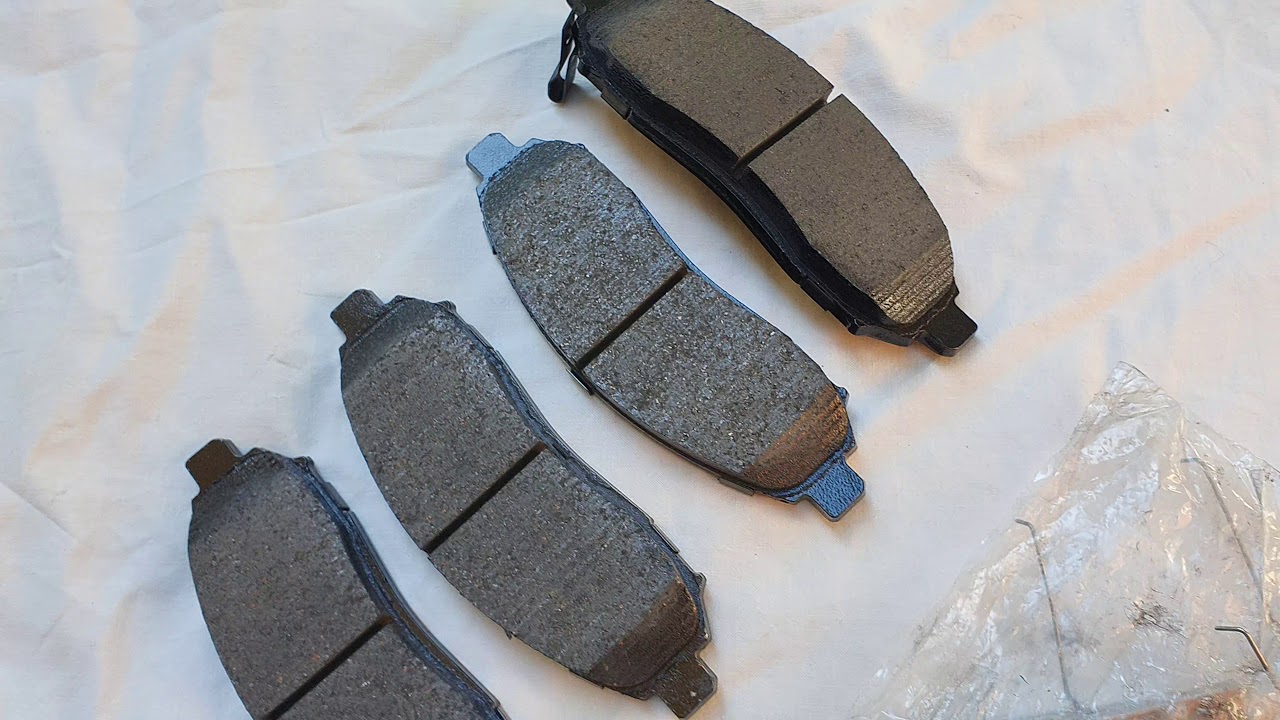
Some vehicles are equipped with a warning light on the dashboard that alerts you when the brake pads are low. Regularly inspecting your brake pads and replacing them when necessary is vital for maintaining effective braking performance.
The Role of Brake Rotors
Brake rotors, also known as brake discs, work in conjunction with the brake pads to slow down or stop the vehicle. As the brake pads press against the rotors, friction is created, which converts kinetic energy into heat, slowing the vehicle.
Over time, rotors can become warped or develop grooves, affecting braking performance and causing vibrations or noise.
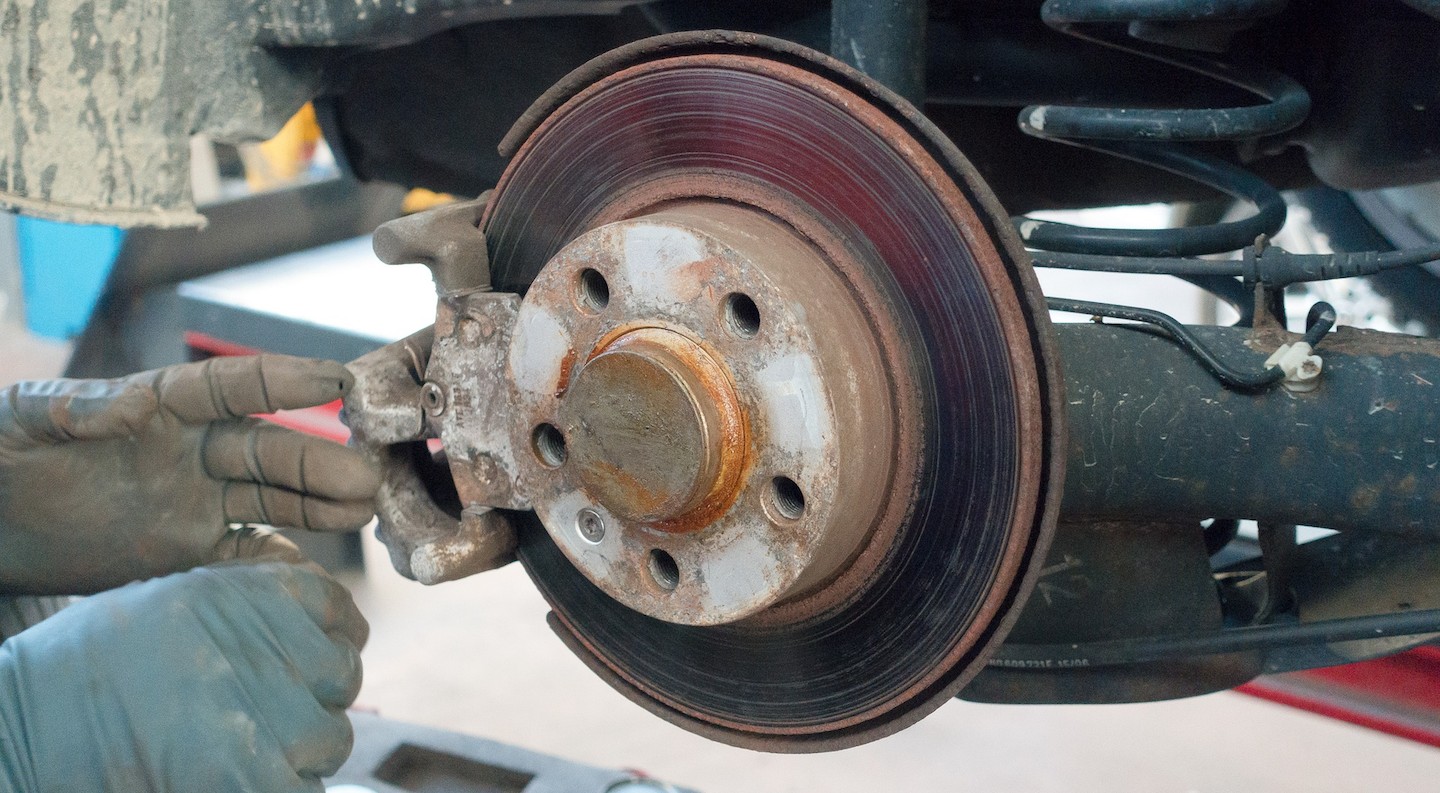
Regularly inspecting the condition of your rotors and having them resurfaced or replaced when needed is essential for maintaining smooth and efficient braking. Keeping your brake rotors in good condition ensures that your vehicle can stop safely and effectively.
Benefits of Regular Inspections
Regular brake inspections are crucial for identifying potential issues before they become serious problems. During an inspection, a professional mechanic will check the condition of the brake pads, rotors, calipers, and brake fluid.
They will also inspect the brake lines and hoses for any signs of wear or leaks. Regular inspections help detect early signs of wear and tear, allowing you to address them promptly and avoid costly repairs.
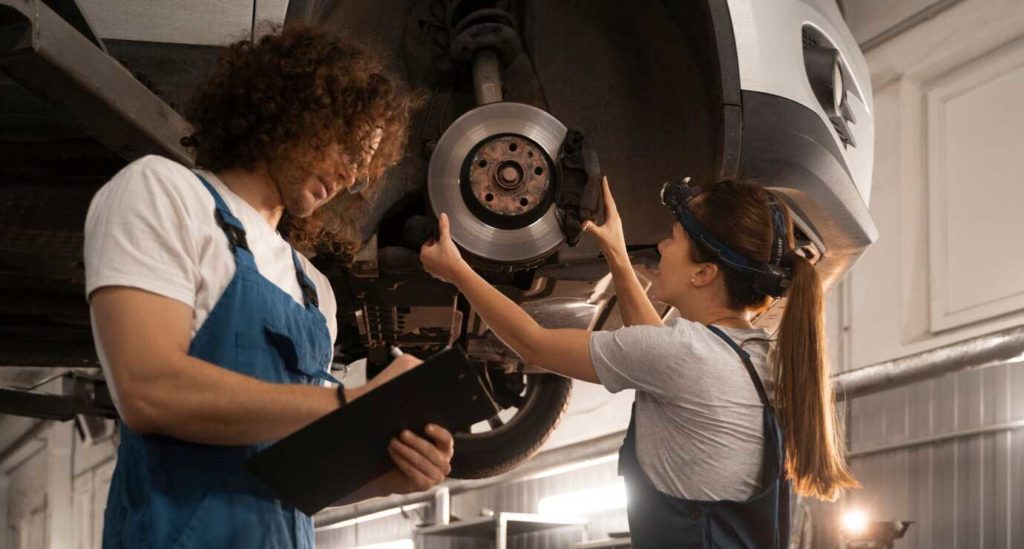
Most manufacturers recommend having your brakes inspected at least once a year or every 12,000 miles. By staying proactive with brake maintenance, you can ensure that your braking system remains in top condition and provides reliable stopping power.
Handling Brake Noises
Unusual brake noises, such as squealing, grinding, or clicking, can indicate various issues with your braking system. Squealing noises often result from worn brake pads, while grinding noises may suggest that the pads have worn down completely and are damaging the rotors.
Clicking sounds can be caused by loose components or improper installation. If you notice any unusual noises when braking, it’s important to have your brakes inspected by a professional mechanic as soon as possible.
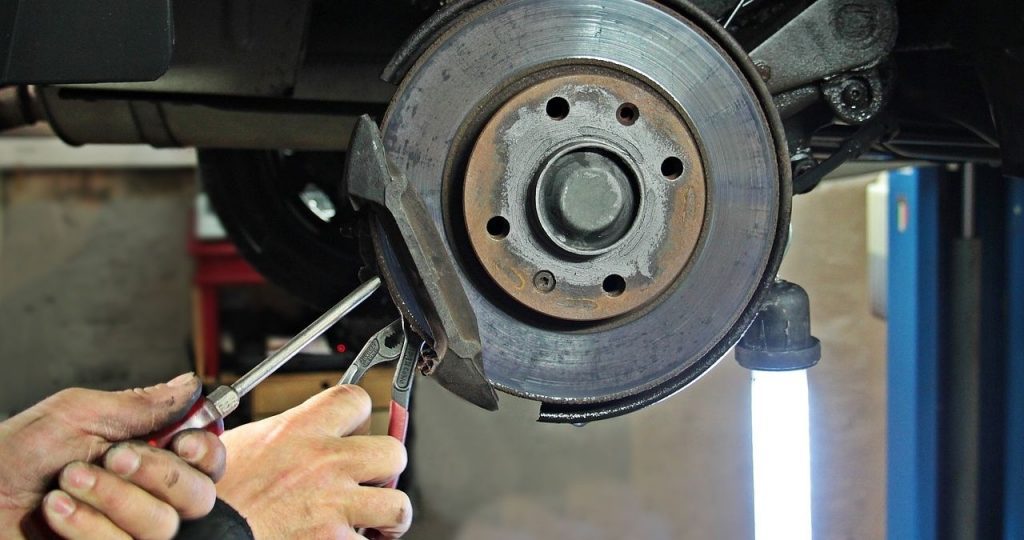
Addressing these issues promptly can prevent further damage and ensure that your brakes continue to function correctly. Ignoring brake noises can lead to more severe problems and compromise your vehicle’s safety.
Advantages of Professional Brake Servicing
While some brake maintenance tasks can be performed by DIY enthusiasts, professional brake servicing offers several advantages. Professional mechanics have the expertise, tools, and equipment to accurately diagnose and repair brake issues.
They can perform comprehensive inspections, identify hidden problems, and ensure that all components are properly installed and functioning correctly. Additionally, professional servicing often includes warranty coverage, providing peace of mind in case any issues arise after the service.
Regularly scheduling professional brake servicing ensures that your braking system receives the attention it needs, keeping you safe on the road and prolonging the life of your brakes.
By understanding the basics of brake maintenance and following these guidelines, you can ensure that your vehicle’s braking system remains reliable and effective.
Regular inspections, timely replacements, and professional servicing are key to maintaining optimal brake performance and safety. Keep your brakes in top condition to enjoy a smooth and secure driving experience.

